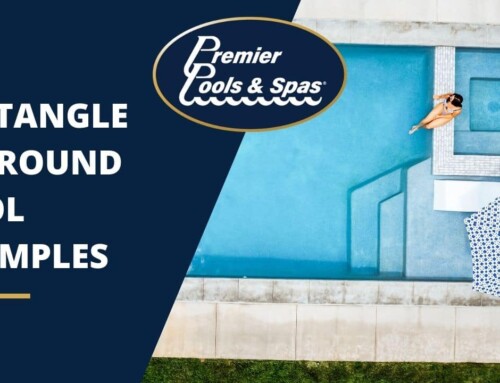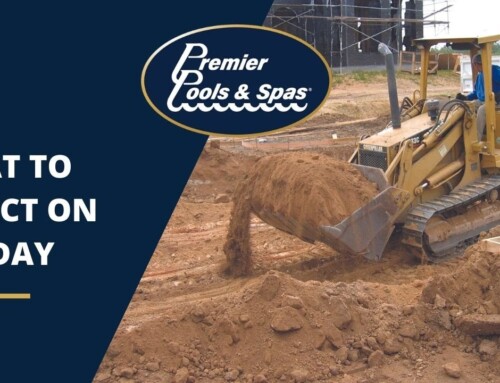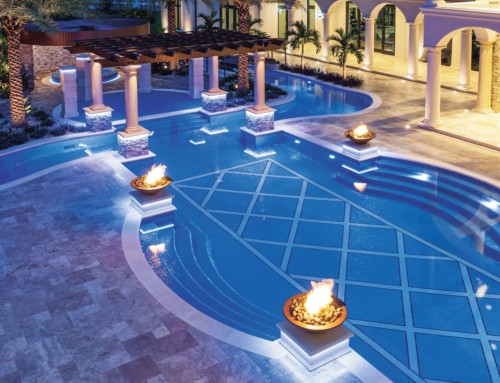
According to the CDC, children ages, 1 to 4 have the highest rates of drowning.
As the snow is melting, and everyone is breaking out their flip flops and sunglasses, school yourself on the ins and outs of pool safety.
When you are not using your pool, you can keep those you love safe from harm with pool safety equipment.
Pool alarms, pool fences, pool nets/pool covers are necessary purchases for any homeowner with a pool.
Having a pool does not have to be a worrisome experience. With just a few products, you can rest easy knowing that your little ones and summertime guests are safe from the threat of drowning.
Of course, pool safety devices DO NOT take the place of attentiveness/parental supervision when using the pool.
These devices serve to aid in protecting those you love and care about when the pool is not in use.
We have done all of the research for you, so just sit back, relax, and let us be your guide to pool safety.
Pool Fences
According to the AAP, pool fences are the number one safety device to have if you own a pool.
Pool fences work for both above ground pools, inground pools, and they even work with hot tubs/ spas.
I mean, who doesn’t want a hot tub or spa to go along with their pool? We didn’t think that you would disagree.
That said, there are many things to keep in mind when purchasing and/or installing a pool fence.
- The fence should be AT LEAST 4 feet tall, have 4 sides, completely surround the pool, and separate it from the house and rest of the yard.
- The fence should be difficult, ideally impossible, to climb. Do not use a chain link fence for a pool fence.
- There should be little to no gaps in the fence that would allow a child to get through to the pool.
- The fence’s gate should be self-latching/ self-closing This prevents the gate from accidentally being left open rendering it ineffective.
Now that you have a better handle on pool fencing, let’s look at some of the building material options available for fencing.
Before we get started, it is also important to note that depending on materials chosen, the price for a pool fence can range from $1,500 to $2,500.
- Wood
- Sturdy
- Budget-friendly
- Long lasting
- Works as a privacy fence
- Mesh
- Not always reliable.
- Affordable.
- Does not work as a privacy fence.
- PVC
- Strong
- Weather resistant (though less resistant than aluminum)
- Works as a privacy fence
- Long Lasting
- More affordable
- Ornamental Aluminum
- Most weather resistant material
- Aesthetically pleasing
- Not much upkeep
- Does not work well as a privacy fence
- Long lasting
- Glass
- Not practical in bad weather
- Aesthetically pleasing
- Allows for a view of the yard while also acting as pool security
- Does not work as a privacy fence
There are many low-cost materials that can be utilized to build the perfect pool safety fence.
Each state also has specific laws pertaining to pool fencing.
Reading these laws will come in handy when making your choice about which materials to purchase and use to build your pool fence to increase pool security when your pool is not in use.
Pool Alarms
When activated/turned on, pool safety alarms alert you with a loud shrill sound when anything enters the water.
I mean very, very loud. You will not miss the sound or mistake it for something else. In the world of pool alarms, this is a VERY good thing.
Obviously, the sound that a pool alarm makes is very effective in preventing drowning, since drowning is silent. This gives you a noise to react to, which can result in saving someone’s life.
Types of pool alarm:
- Underwater Alarm
- Detects waves underwater
- Pro: Can be used along with pool cover
- Pro: less chance of a false alarm
- Floating/Surface Alarm
- Detects waves on the surface of the water
- Con: Cannot be used along with pool cover
- Wristband Alarm
- Worn by child and alarms when exposed to water.
- Con: Parent/adult must remember to put the wristband on the child.
- Door/Gate Alarm
- Mounted on doors and gates.
- Sounds an alarm when doors/gates are opened.
When using a pool alarm, it is important to also have wireless alarm receivers throughout your home.
This way, if activated, the pool alarm can be heard immediately in any area of your house, even if you are nowhere near the pool.
Now that we have covered what a pool alarm is, now we can dive into which pool alarms are worth your hard earned money.
Top 10 Reviews did an experiment in April 2019 where they tested multiple pool alarms using various criteria.
These criteria include cost, the range that the receiver reaches, battery life, and how loud the alarm is, in decibels. However, there are more criteria listed in the experiment results.
Below, we have detailed the three pool alarms that stand out in the study:
- Good Buy Overall: Brickhouse Pool Alarm
- Mounts to side of the pool
- Costs around $150
- Loud. VERY loud. Alarm strength of over 100 decibels.
- Battery lasts about a year.
- Receiver has a range of 300 feet.
- Best Floating: Pool Guard Safety Buoy
- Costs around $140-$165
- Again. VERY loud. Alarm strength of almost 98 decibels.
- Battery lasts about a year.
- Receiver has a range of 200 feet.
- Best Wearable: Safety Turtle 2.0
- Costs around $160
- Battery life of 3-5 years.
- Decibel strength of 98.7.
This comparison hopefully made it obvious that regardless of what you desire to have in a pool alarm, there are multiple options out there that aim to ensure the safety of your children and loved ones.
The very slight differences in cost leave you to choose what works best you and your family without wondering if you are getting the best possible alarm for your money.
Pool Nets/Pool Covers
In addition to pool fences and pool alarms, there is a third line of defense.
Pool nets and pool covers can be used along with the underwater pool alarms, giving pool owners a double line of defense against tragic accidents.
Pool covers can be motorized, and they can also be manual. There are hardcovers and soft covers to choose from.
While hard pool covers are more expensive, following the initial cost, there is not much work involved with covering the pool, as the motor takes care of the work.
On the flip side, if choosing a manual pool cover, remember that an adult will have to secure the cover by hand. This can take anywhere from 5-10 minutes.
You also need to account for the storage availability. You need to have somewhere to put your pool covers when you actually want to use your pool.
With an automatic pool cover, figuring these things out is not necessary since the cover either stores itself under the deck or rolls up at the end of the pool.
Make sure any pool nets, pool covers, etc you wish to purchase are ASTM certified.
Any products with this certification have met defined safety specifications set in place that aim to aid in preventing drownings.
Now that you know what to look for, it is also important to note that pool covers can be expensive, and a more budget-friendly alternative is a pool net.
That said, let’s outline the best of both worlds, expensive and somewhat less expensive in the world of pool covers/nets.
- Automatic or Motorized Pool Cover (you push a button and the motor takes care of the rest, except locking it in place)
- Cost of between $10,000 and $20,000.
- Manual Pool Cover (you crank these with a hand crank and secure them in place)
- Mesh and solid vinyl covers cost between $1,200 and $3,000.
- Pool Net (Manually cover pool and secure in place)
- Cost of between $1,500 and $2,500.
Another important thing to note, which you can relate to if you have ever had to clean leaves and other debris out of a pool, is that solid vinyl pool covers and hard automatic/ motorized pool covers keep debris out of your pool.
Mesh pool covers and pool nets do not keep debris out, adding to pool maintenance time.
Purchasing an automatic pool cover means less work for you after the more expensive initial cost.
Regardless of what pool cover or pool net you choose for your pool, it is important to remember that the most important thing is safety.
If used in conjunction with pool alarms and pool fencing, pool covers and pool nets increase the level of pool security at your home.
The more security, the better.
Contact Us
Now that you know what main types of pool safety equipment and pool safety alarms exist on the market, give us a call or write us a message on our contact page to discuss your dream pool and spa.
We can design your dream oasis, and you won’t even have to worry about the “what ifs” and potential dangers of what could happen if you decide to buy a pool.
Forget Hawaii, let us help you have a permanent vacation spot in your own backyard this summer.
Make it a safe summer with pool safety equipment, and let the worries drift away.



